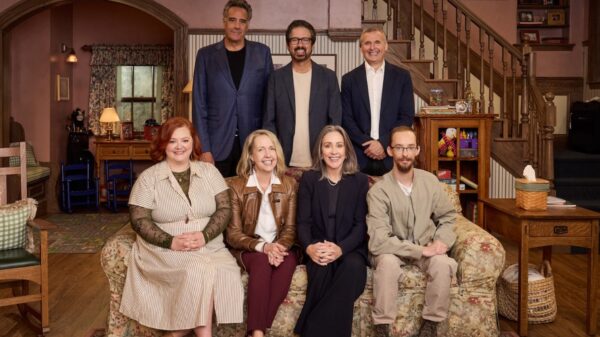The Netflix documentary “Unknown Number: The High School Catfish” has sparked widespread discussion following the revelation that Michigan mother Kendra Licari engaged in cyberbullying against her own daughter, Lauryn Licari. Over a span of two years, Kendra sent her daughter thousands of abusive texts, leading to her arrest in December 2022 on multiple charges, including stalking and obstruction of justice. This unsettling case raises profound questions about parental behavior and mental health.
Kendra’s actions included sending vulgar, explicit, and threatening messages to both Lauryn and her daughter’s then-boyfriend. At her sentencing, Judge Mark Duthie expressed shock, stating that the case revealed “the worst in human nature.” He remarked, “I can’t imagine any parent saying such horrible things to her own daughter.” The documentary builds suspense before revealing Kendra as the source of the cyberbullying, leaving viewers grappling with the motivations behind such behavior.
Despite the shocking nature of the events, there is no clear explanation for Kendra’s actions. Neither the documentary nor public records provide insights into her mental health status that might clarify her behavior. Observers close to the case, including Bill Chillman, Lauryn’s school superintendent, suggest it may resemble a case of Munchausen syndrome by proxy. Chillman stated, “She wanted her daughter to need her in such a way that she was willing to hurt her.”
Understanding Munchausen by Proxy
To further explore this theory, TODAY.com consulted Dr. Mary Sanders, a psychologist at Stanford University who specializes in Munchausen by Proxy. This condition involves a caregiver falsifying illness on behalf of another, typically a child, to satisfy their own psychological needs. Dr. Sanders explained, “This behavior persists even though there is no external reward; it’s to meet their psychological needs.”
The rise of technology provides new platforms for these behaviors to manifest. Dr. Marc Feldman, a psychiatry professor at the University of Alabama, notes the emergence of “Munchausen by internet.” He highlights how technology can amplify the effects of such disorders. Dr. Sanders emphasized the emotional abuse involved in Kendra’s actions, stating, “This is abusive, extremely emotionally abusive… certainly intentional deception.”
As the documentary depicts the harrowing nature of Kendra’s messages, Sanders pointed out the disturbing encouragement of self-harm directed at Lauryn. She noted, “Kendra claimed to have known that Lauryn wouldn’t kill herself, but we certainly know of cases in which kids have with far less cyberbullying than this.”
A Survivor’s Perspective
In a compelling connection to the documentary, Jordyn Hope, a survivor of Munchausen by Proxy, shared their personal experiences. Jordyn, now 30, recognized parallels between their life and Lauryn’s story while watching the documentary. They were subjected to similar abuse by their mother, who fabricated various medical conditions throughout their childhood.
Reflecting on the feelings of betrayal and confusion, Jordyn stated, “One of the big things that really, really struck me was this sense of identity and having believed this whole time that it’s you and Mom against the world.” They highlighted the complexity of emotions involved, noting, “Even when your mom does the seemingly most evil things you could imagine, you still saw your mom laugh.”
Jordyn understands why Lauryn might still feel affection for her mother, stating, “I just want to tell her that anything she’s thinking or feeling is OK. She didn’t do anything wrong.” This sentiment resonates with many viewers who struggle to comprehend the bond between a parent and child in such troubling situations.
The case of Kendra and Lauryn Licari serves as a stark reminder of the complexities of parental relationships and the potential for psychological disorders to manifest in harmful ways. As discussions around the documentary continue, it raises essential questions about support systems and the need for awareness regarding mental health issues.
If you or someone you know is in crisis, please call or text 988, or visit 988lifeline.org to reach the Suicide & Crisis Lifeline.








































































